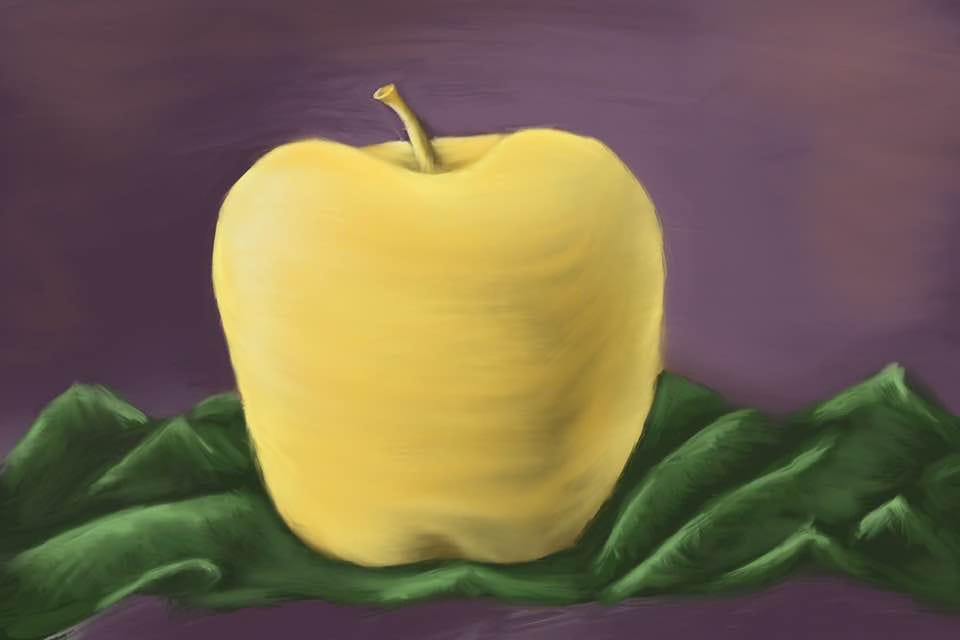Like many, I really took on board the concept of privilege - in the context of racial, gender and other kinds of societal discrimination - in the flush of the late-2000s Anglophone social justice internet. Learning this language was clarifying at first. My legal training meant I had a prior tendency to understand discrimination mainly in terms of the denial of rights. This is a vital lens, but used alone it can obscure the position and roles of those who benefit from discriminatory environments. Some dynamics can only be properly made sense of with the additional idea of the unearned leg up, the selective benefit of the doubt, the unfair deference, that the notion of privilege helps to name.
For a few years, I devoured related analyses on blogs and social media, and to a lesser extent books, that elaborated on these themes in ways which probably need no further explanation to you, my contemporary. My understanding of the world expanded, and I connected with others going through parallel awakenings. Truths that you have only just found always feel especially urgent; when you spin away from stable mental pathways, it’s not surprising that you might form a mutual orbit with others on a similar journey.
These connections included a few friendships, some productive and creative collaborations, and many casual social exchanges. There were also what I now know to call one-sided parasocial relationships. By definition I’m more aware of the instances where I was the media consumer, and a writerly persona occupied a position of significance in my imagination. But in the context of my erstwhile civil society work in Singapore, with an accompanying social media presence, it probably also worked the other way from time to time.
I’ve written before about destructive dynamics that I eventually, belatedly, noticed in circles where a commitment to equalities was a professed norm. That piece was partly a mea culpa, in that I felt responsible for not better recognising and responding to what was going on. As individuals, each of us is ultimately a bit player in wider societal and cultural trends, but we have influence in our own immediate spheres, and three years later I continue to think I could have wielded mine better.
Even though I’m even less than a bit player now in many spaces where I used to participate, I would still like to set down a few reflections on the limits of ‘privilege’ as a concept.
First and most fundamentally: analysis of privilege illuminates some dynamics very well, but as I have encountered it, it doesn’t tend to present a positive vision of desired outcomes. This means it’s severely limited as a way of understanding how to imagine a broader movement towards social and political equality and indeed human well-being.
Notably, at its core, the concept of privilege - unlike a rights framework - does not distinguish between things that everyone should have and things that no one should have. It is unfair that the needs of some classes of people are consistently met, while the needs of other classes are not; but in my view, this disparity should be met by levelling up, not down. It is also unfair that some classes of people have social licence to engage in harmful behaviour, while other classes do not; but this disparity is best served by tackling the harmful behaviour, not extending the licence to more groups to do harm. Yet discussions of privilege may, and in my experience frequently do, conflate both types of disparity.
Of course there are more complex examples. The considerations behind an men's-only club for elite networking differ from those behind a women’s-only domestic violence shelter; the notion of privilege does shine light on the different meanings when someone is turned away from each. But in many cases I suggest that the most fundamental question will be whether a human right, or a basic human need, is at play. My contention is not that privilege is a wholly unhelpful concept, but that it is only a useful additional element of understanding, and should not form the backbone of inquiry.
My second observation grows out of the first. For some, the crudest notions of ‘ending privilege’ - especially when coupled with ideas like ‘it’s okay to punch up’ and ‘don’t tone police how people talk about their own oppression’ - are taken as permission to indulge in nastiness and prejudice. Ritualistic sneering, and sometimes rhetorical dehumanisation of ‘privileged’ groups or individuals, can become a mode of (in effect) recreational group bonding. This, I suggest, is not very useful for achieving equalities goals. Moreover, such dynamics are vulnerable to escalation and hijack by those whose motivations are centred on their own aggrandisement rather than on wider societal or political change - even if this motivation is in some cases perhaps unrecognised by themselves.
Ye gods! I can already hear some portion of a response. Is she going to talk about ‘reverse discrimination’? Save the poor dominant group from evil privilege discourse? And pathologise others people’s commitments to social justice?
Maybe? I guess? But also, not really? Look, each of the ideas I am expressing concern about has an important kernel of validity - I like to think this is why I acquiesced in bad invocations of them for longer than I should have. As concerns ‘punching up’, in societies where wealth and positions of power are overwhelmingly assigned to (for example) men of a particular ethnic group, statements mocking that demographic will certainly have a vastly different personal and social impact compared to a statement mocking women/girls and/or a racialised minority. The stakes are simply not the same. Likewise, no one with a sense of proportion can take seriously the idea that the standing or well-being of straight people is meaningfully harmed by queer people joking about heterosexuality.
It is also correct to warn that people who don’t want to hear the truth about discrimination engage in ‘tone policing’. Relatively simple statements of fact about the experiences or perspectives of marginalised people can seem inflammatory to the defensive mind (and, yes, that defensiveness often does come from a desire to avoid confronting privilege). There is also a not-uncommon bad faith tactic whereby people redirect attention away from a valid complaint of discrimination by nitpicking on how that discrimination is described. The rejection of ‘tone policing’ is important in preventing this deflection.
Finally, sometimes people just need to vent - we all need to vent, about all kinds of bad stuff that happens to us! Given how exhausting and demoralising it is to face a day or month or lifetime of discrimination, it’s hardly surprising that people might vent about it in strong and colourful terms. It is good and necessary that people are given the space to vent without having to tiptoe around making their venting palatable to unsympathetic critics. This is also part of how people recognise commonalities in their experiences and build connections and collective strategies around them.
These things are all true. And yet. I want our picture of the world to make room for more truths:
While ‘punching up’ is not the same as ‘punching down’, it is also perfectly possible to be mean-spirited or vile to individuals or groups about characteristics that are associated with their privilege. More than possible: I have encountered it many more times than I’d like. It is not always for the purpose of communication or catharsis; it is sometimes done simply because shared contempt is pleasurable, and within some subcultural groups, privilege demarcates acceptable targets for contempt. Perhaps it’s hard to define in advance exactly when the line is crossed between honest complaint and gleeful malice - but if you can’t even acknowledge such a line exists, you’re that much more likely to cross it.
I’m particularly troubled by the more vitriolic forms of racialised and religious ‘punching up’. If the punchers don’t belong in any sense to the targeted group, the whole phenomenon very quickly shades into sectarian feeling; and once entrenched, that can long outlive - and expand far beyond - any just cause. Do we really want to normalise contempt for other people’s harmless cultural or linguistic practices, even if they are from a dominant group shielded by privilege? “This is just a small taste of what marginalised people go through every day” - okay, but isn’t the aim to end it, not reproduce it, even in some defanged mirrorworld form? On this big ol’ planet, one country’s dominant group can be another country’s beleaguered minority; often, you only have to cross a border to see that flip. And over the course of time, today’s minority can become tomorrow’s dominant group. Do we really know how our words or attitudes are carrying over into new and evolving contexts?
If I were to rank social ills, ‘prejudice and nastiness in the guise of punching up’ would not rank anywhere among the worst. But I do believe it is an ill; that it impedes progress toward equality, diverting energies and goodwill away from positive movement on things that matter; and that it contains within it the seed of worse things, which we should not encourage to flower.
My third point is not really an argument, but a general worry about an activist anti-strategy of hitting soft targets. Strictly speaking, this is not about the lens of privilege, but it has some connections to it.
I’ve observed before a strand of activism in Singapore which, back when I followed developments more closely, shrouded itself in the language of equalities but did not seem to focus on addressing the structures with the greatest impact on equalities. Rather it focused on hitting those who wouldn’t hit back, often figures and organisations in arts, academic and civil society who were broadly sympathetic to equalities claims to begin with. Essentially, some activities appeared to be mostly jostling for position within a subcultural milieu, sometimes by weaponising charges of privilege in a blunt and weirdly atomised way (the person with ‘more privilege’ has ipso facto nothing valid to say, the person with ‘less privilege’ must be right in all respects). When the ‘privileged’ do not acquiesce, their projects or perspectives are then said to be delegitimised.
Let me be clear: artists, academics and civil society organisations and movements should not be immune from criticism, nor from the ethical imperative to make their/our spaces less hierarchical and more inclusive. But when it comes to spaces and groups that are, in imperfect ways (and there are only ever imperfect ways), directed toward positive change (and not just, say, private profit), it is surely worth pausing to think about what should be preserved and salvaged as well as what needs to be replaced or improved.
I do worry about a certain strange marriage of naiveté and nihilism that I have observed. This mode of thinking rests on the idea that it’s so easy to get things right once you’ve been told - the years of effort that it takes to build value in certain institutions or spaces is discounted. At the same time, once something fails a quickly applied purity test, it shows itself irredeemably corrupted and can be junked without loss. There is little room for good faith disagreement - not on fundamentals, mind you, but on specific tactics or behaviours or even on differences in the prioritisation of time and energy.
I know this is a really annoying middle-aged person thing to say, but the world just doesn’t work that way. Getting stuff done on any scale is hard. It takes time and effort, and trial and error, and a succession of people all doing their incomplete parts with no guarantee of success and usually little reward. It also takes specialisation, and division of labour, and work across a range of spheres and fields - not everyone is going to take up the same causes, and that’s more than okay, it’s indispensable, if entire systems are to be shifted. Those who broadly share a vision of a more equal world need to find ways to collaborate and show mutual support across our gaps and imperfections, or none of us is ever getting anywhere.
As I said earlier, at first, I experienced conversations around privilege principally as additive - it has contributed huge value to my life! Like any great shift in framing, it involved taking apart some old ways of understanding things and developing new patterns of thought in their place. But I think it is a mistake to get stuck on it as a Theory of Everything. If you imagine human society as an animal body with complex machinery, privilege is like a medical condition affecting the functioning of a crucial organ system. You cannot have a healthy body if privilege is running unchecked. But you also cannot tend to the body without understanding the structures in which that condition is operating, which have their own particularities and logics beyond that system. I write this not to suggest we put down conversations about privilege, but only that we see them in context.
A wise friend who saw a draft of the above urged me to elaborate on the movement of my thinking over time. Implicit so far is the idea that conversations on privilege once helped me, but now offer less than before. Is that evolution worth unpacking? Have I changed? Have the conversations changed? Have both?
It interested me that my friend picked up on this, because this text began as an offshoot of another piece, specifically about the timescales of dialogue. I decided to chunk off thoughts about privilege that kept creeping in, thinking they formed a discrete piece, but it appears that that temporal dimension continues to animate what I’m saying here.
So: why now? Zadie Smith, recently in conversation with Ezra Klein, spoke of society metabolising ideas. I take this to mean digestion, processing, reformulating and redeploying ideas in different forms and locations from before. And I think I am responding to how, over the past decade or so, analyses which once moved me have been in part usefully metabolised, by me and others, while other parts have remained undigested and perhaps are looking indigestible - stuck in our collective craw.
To me, triumphantly declaring “Privilege!” at a situation has never been an end in itself. Rather, the point is to illuminate how we might do certain things poorly and unfairly, to understand why, and to investigate what solutions could improve them. In some spheres, this conversation has caused my and others’ habits of attention to meaningfully change for the better. I see it in education, media, arts and culture especially, but in a range of other spaces and organisations too, if unevenly. There’s greater baseline recognition that spaces, products and decision-making groups ought not to represent a lazy conception of a default human (straight, male, majority ethnicity), and that active curation is needed to work against that result. Anglophone children’s media, for example, is not what it was 15 or 20 years ago.
Are these shifts complete? No. Are they the most important priorities for equalities? Also no. But they are also not nothing. And in my view, they are examples of successful metabolism: in many places, it is no longer necessary to litigate the concept of privilege in the same foundational way as before, to get these things moving. I see that as a good thing. The purpose of the conversation was always to grow beyond it.
Yet the other troubling habits of attention and communication which I described in the first half of this piece - they too are a legacy of the 2000s and 2010s conversations on privilege, the result of its metabolism, and all the ways in which its proponents (including me) failed to make it the best version of itself. Part of the answer to why am I writing this now? is maybe that I see these failures taking new forms which may not even mention the word “privilege”, but are recognisable to me as the descendants of those conversations and dynamics. And for whatever it’s worth in this little sphere of readership that I have, I think this continuity should be acknowledged.
I wish to keep a sense of proportion about this failure. You could say it is hardly a novel failure mode: another friend who read my draft also noted echoes of many other historical movements which have weaponised the language of equality in disturbing ways. For me, this is not a reason to abandon that language, but rather to listen more closely to the serious questions I have always heard (from both myself and others) about how it is used. It is worth taking the time and care to sit with doubts and work through them. And I hope perhaps it’s worth me writing some of them down.





